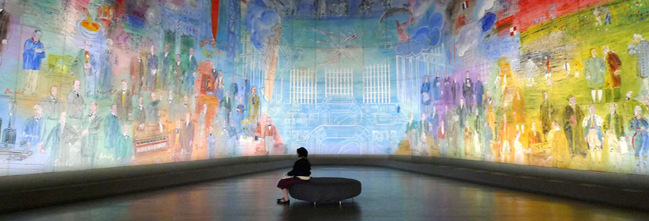
Together with teaching anthropology as a university lecturer, one of the more ‘traditional’ career pathways for anthropologists is working in museums. Museum work can encompass a wide variety of different roles: as museum curator, researching and presenting artefacts in displays; as education officer, working on educational materials and ongoing learning projects, or as an independent researcher doing contract work for a particular exhibition. In some cases (particularly in smaller museums) substantial overlap exists between different jobs, and you might find yourself doing a bit of everything.
The variety of tasks, and the opportunity to work with a wide range of people on enticing projects, means that finding work in museums can be extremely competitive. Increasingly, the majority of museum jobs require a post-graduate qualification, and many students end up doing their second or third degree in Museum Studies or a related specialisation.
If you are interested in working in museums, it is very useful to gain some practical work experience. Most museums have volunteers helping out with research and general administration tasks, as well as preparation and running of events. Volunteering can be a very good way to find out if working in a museum is really what you want to do, and for making contacts with people in the industry. Similarly it may be beneficial to join one of the museum organisations listed below.
Recommended Resources
General
Culture 24 – Information on thousands of UK museums, galleries, archives and libraries.
Articles
http://www.guardian.co.uk/education/2009/feb/06/graduates-museums – This is an interesting and informative article about careers in museums from the Guardian
http://www.guardian.co.uk/money/2010/jun/12/working-life-museum-curator – an interesting case study of what it’s like to work as a senior curator for the Museum of Childhood
http://blog.americanhistory.si.edu/osaycanyousee/2011/07/why-i-love-working-at-the-national-museum-of-american-history.html – a blog post by a museum curator at the National Museum of American History expressing why she loves her work
Books
How to Get a Job in a Museum or Art Gallery
Baverstock, A. (A&C Black Publishers Ltd.2010)
Archivists, Curators, and Museum Technicians: Job Hunting – A Practical Manual for Job-Hunters and Career Changers
Gladwell, S. (Emereo Pty Limited,2011)
Museum Careers: A Practical Guide for Novices and Students
by Elizabeth Schlatter (Left Coast Press, 2008)
Creative Careers in Museums
by Jan Burdick (Alworth Press, 2007)
Recruitment
www.museumjobs.com – lists current jobs both in the UK and internationally in museums and galleries.
www.artjobster.com lists jobs in visual arts, as well as gallery, museum and community arts jobs.
www.museumsassociation.org – has excellent information and resources on finding jobs in the industry.
http://www.nationalmuseums.org.uk/jobs/– the national museum director’s council job listing page
Professional Organisations, Groups and Societies
The Association for Independent Museums– is an organisation representing a network of independent museums. It aims to improve standards of service, and contribute to national policy making.
The Council of Museum Anthropology – an all-volunteer membership organisation serving anthropologists and museum professionals.
The Museums Association is the oldest museums’ association in the world. The MA represents the people and institutions constituting Britain’s museums and galleries.
The Museum Ethnographers’ Group is a UK based organisation devoted to the work of ethnography and ethnographic collections in the UK.

